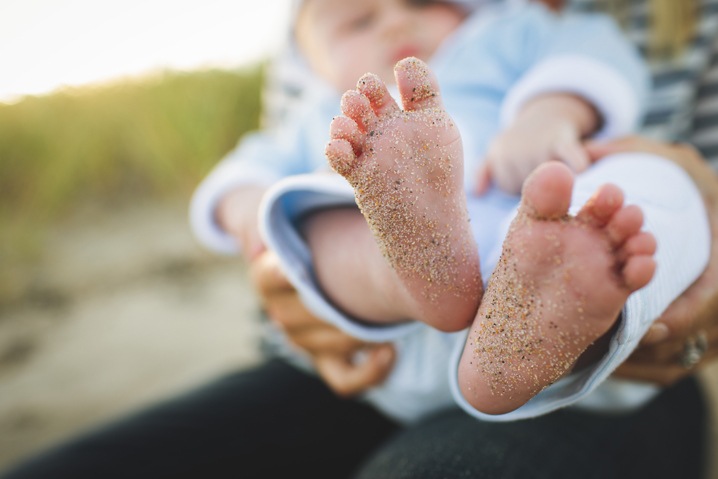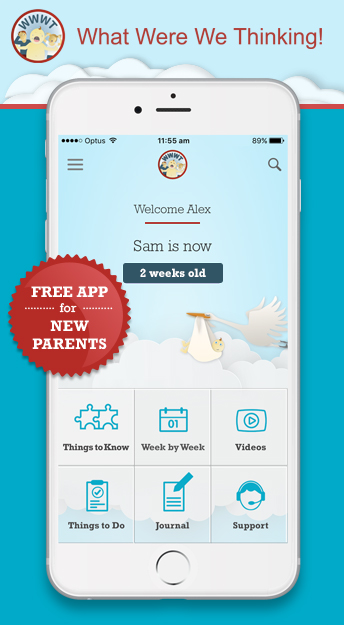Challenging and changing the language of parenting
By Jane Fisher

We use all words, phrases and ideas to describe parenting and motherhood, some of which are unhelpful. These words and phrases can undermine the confidence of new parents, perpetuate stereotypes about who does what, and undermine the essential role that fathers play in a baby’s growth and development.
Mother’s intuition
Ideas about a “mother’s intuition” or “mother’s instinct”, are generally problematic. They suggest that women have inbuilt knowledge and understanding about how to care for a baby. However, this presumption is not made about any other highly responsible occupations and, in all of them, training, mentorship and supervision are expected. Caring for a new baby requires detailed knowledge about infant development and a specific set of skills that are learnt on the job. Some people can recall caring for younger siblings or cousins, but most women and men today have not cared for a baby before. No one comes to parenthood with all the skills they need.
We are powerfully connected with our own early lives when we have a baby. If you have the good fortune to want to do things in more or less the same way as your own parents did, (perhaps with a few updates), it is easier to rely on what ‘feels’ right. However, if you want to leave adverse experiences behind and care for your baby with more sensitivity and protection than your own parents were able to provide for you, it is more difficult. Whatever the circumstances of your own early life, caregiving skills have to be learnt and practiced. Everyone learns and adapts at a different pace. If you do not feel confident, it is not accurate to think that you are missing an inherent characteristic, rather it can be thought about as a learning need that can be met by seeking guidance from an experienced person.
The idea of “mother’s intuition” can also be problematic for new fathers. Fathers – who play an essential role in their baby’s development – may believe that their partner should have the main caregiving responsibilities because women know automatically what to do. Like mothers, fathers grow in confidence through lots of hands on practice. Criticism is not good for anyone’s confidence and we know that mothers and fathers feel better when they praise and encourage each other.
Parenthood isn’t work Parenthood
Caring for a new baby and managing a household in which a baby lives, is work, but is not generally named or understood as work. If caring for a new baby is not thought about as work, it can often be misunderstood as leisure. It is unpaid work that can be thought of as a double shift every day and being on call for the third shift, including weekends. It is not very visible work, and is most obvious when it is not done, rather than when it has been completed. Parents generally feel better when both paid and unpaid work are recognised, and discussed and when it is shared between them in ways that feel fair. Consideration of the language we use is important, for example, when one parent takes leave from their paid work to look after their baby, they are not ‘giving up work’; rather they are working as a parent.
Dad the babysitter
Picture this: A woman has spent all week caring for the baby, and a friend suggests that they should go out to see a movie or get some dinner, her partner offers to babysit. Babysit?
The idea that fathers babysit their children can reinforce the notion that mothers are the primary care givers and fathers are there to ‘help’, rather than to give competent care. Research shows that one of the contributing factors to postnatal mental health problems among women and men is having a partner who holds rigid ideas about gender roles and caregiving responsibilities. Fathers are fathers not babysitters.
Having conversations with your partner about recognising the paid and unpaid work and how it is divided can be difficult but the What Were We Thinking worksheets and app have some great advice for tackling these difficult conversations and reaching good solutions.
Jane Fisher is Clinical and Health Psychologist and Professor of Women's Health. She has been a sessional consultant to Masada Private Hospital Mother Baby Unit since 1996. Jane's research focuses on understanding and addressing the factors that influence women's and men's health and wellbeing during pregnancy and the life phase of caring for young children.
Posted in: A new reality In this together Parenting Experts Your needs








